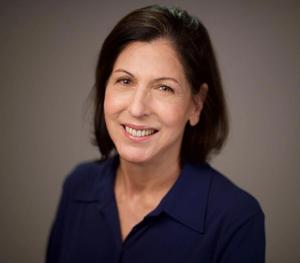Science
Trump’s Cuts Threaten America’s Public Universities Amid Nobel Wins

In a remarkable display of academic achievement, six scientists affiliated with U.S. institutions were awarded Nobel Prizes within just three days. Each recipient has ties to America’s public universities, with five linked to California’s prestigious higher education system. This success stands in stark contrast to the actions of President Donald Trump, whose recent policies threaten to undermine these vital educational institutions.
Trump’s criticisms of universities, both public and private, center around their perceived failure to uphold free speech and manage student behavior, including instances of antisemitism. While there are valid points in his critique, the administration’s approach has primarily manifested as attempts to reduce funding. The president has framed these cuts as a means of “saving” taxpayer money, stating, “We will cut funding by $584 million and thereby save taxpayers.”
Among the Nobel laureates in medicine are immunologists Mary Brunkow and Fred Ramsdell, who shared the prize with Shimon Sakaguchi. Brunkow completed her studies at the University of Washington and Princeton, while Ramsdell earned both his bachelor’s and doctorate at the University of California, first at San Diego and then at Los Angeles. Sakaguchi is a faculty member at Osaka University in Japan.
In the field of physics, the Nobel Prize was awarded to three scientists: one British, one French, and one American, all of whom are currently affiliated with University of California campuses in Berkeley and Santa Barbara. John Martinis, the American laureate, received all his degrees from Berkeley. Their groundbreaking work involved discoveries related to “macroscopic quantum mechanical tunneling and energy quantization in an electric circuit.”
Furthermore, Omar Yaghi, who holds a chair in chemistry at Berkeley and has roots in Jordan, was recognized with the Nobel Prize in Chemistry. He obtained his undergraduate degree from the State University of New York’s Albany campus and his Ph.D. from the University of Illinois at Urbana-Champaign.
The current administration’s threats to public universities, including potential layoffs and budget cuts, raise concerns about the future of academic research and education in the United States. Trump is specifically attempting to freeze around $584 million in grants at UCLA, in addition to seeking to recover about $1 billion over unrest issues on the campus.
California’s economy, which is larger than that of Japan, is prompting state lawmakers to consider measures to circumvent federal funding for scientific research. They are discussing a potential $23 billion bond measure for the 2026 ballot aimed at replacing lost federal dollars. If approved, this funding would allow California to provide grants and loans directly to its universities and research institutions, effectively bypassing the National Institutes of Health (NIH), the world’s largest funder of medical research.
In response to the federal government’s actions, at least 24 campuses within the University of California and California State University systems have reported losses in NIH training grants. California already operates six academic health centers, and if state taxpayers take over funding, other states might not benefit from these resources.
The coalition of states, including Washington and Oregon, is also growing to evaluate scientific data and provide recommendations on vaccines, reflecting a broader concern about federal intervention in education and research.
During this critical period, the fate of America’s public universities hangs in the balance, as political decisions continue to impact the very institutions that drive innovation and excellence. As the nation grapples with these challenges, the question remains: how far will the political landscape influence the future of education and research in the United States?
-

 Lifestyle3 months ago
Lifestyle3 months agoLibraries Challenge Rising E-Book Costs Amid Growing Demand
-

 Sports3 months ago
Sports3 months agoTyreek Hill Responds to Tua Tagovailoa’s Comments on Team Dynamics
-

 Sports3 months ago
Sports3 months agoLiverpool Secures Agreement to Sign Young Striker Will Wright
-

 Lifestyle3 months ago
Lifestyle3 months agoSave Your Split Tomatoes: Expert Tips for Gardeners
-

 Lifestyle3 months ago
Lifestyle3 months agoPrincess Beatrice’s Daughter Athena Joins Siblings at London Parade
-

 World2 months ago
World2 months agoWinter Storms Lash New South Wales with Snow, Flood Risks
-

 Science3 months ago
Science3 months agoTrump Administration Moves to Repeal Key Climate Regulation
-

 Business3 months ago
Business3 months agoSoFi Technologies Shares Slip 2% Following Insider Stock Sale
-

 Science3 months ago
Science3 months agoNew Tool Reveals Link Between Horse Coat Condition and Parasites
-

 Science2 months ago
Science2 months agoSan Francisco Hosts Unique Contest to Identify “Performative Males”
-

 Sports3 months ago
Sports3 months agoElon Musk Sculpture Travels From Utah to Yosemite National Park
-

 Science3 months ago
Science3 months agoNew Study Confirms Humans Transported Stonehenge Bluestones








